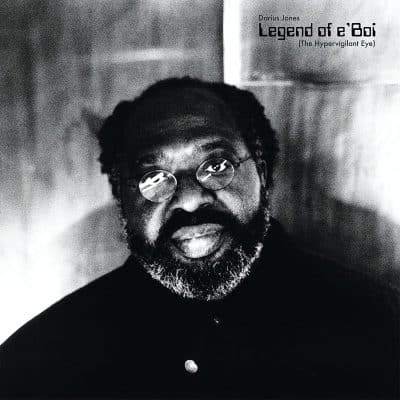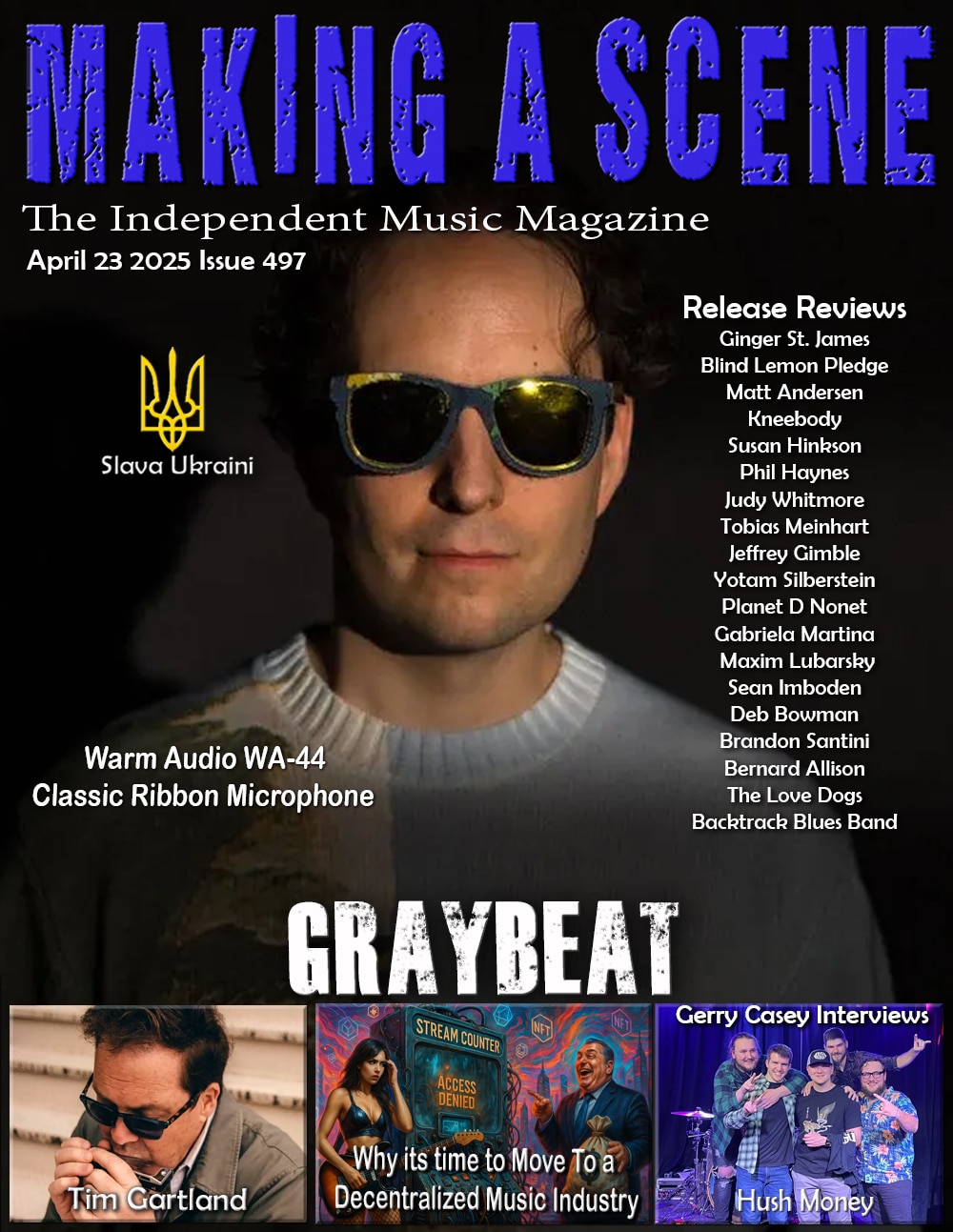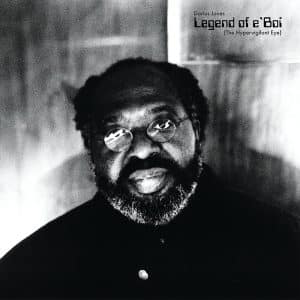Darius Jones Legend of e’Boi (The Hypervigilant Eye)
 Darius Jones
Darius Jones
Legend of e’Boi (The Hypervigilant Eye)
AUM Fidelity
Whenever an artist first appears on these pages, I feel compelled to provide more biographical information than I customarily do in reviews. Darius Jones is a saxophonist, composer, and educator with musical bents toward Black, avant garde, and experimental music. He has received notoriety from such esteemed outlets at NPR Music, The Wire, The New York Times, Pitchfork, The Washington Post, and Downbeat. His musical career includes stints with Matthew Shipp, the quartet Grass Roots, and the punk-jazz quartet Little Women.Jones has composed for and worked on projects in new music, contemporary and avant-garde jazz groups, chamber ensembles, modern dance performance and multi-media. Last year I saw him perform with Henry Threadgill’s Make a Move ensemble at Big Ears. This Fall Jones joined the faculty at Wesleyan University as Assistant Professor of Music.
Legend of e’Boi (The Hypervigilant Eye) is the seventh in a nine-part series of his expansive Man’ish Boy series (AUM Fidelity} begun in 2009. The sixth installment in the series is his solo saxophone project Raw Demoon Alchemy (a lone operation) (Northern Spy 2021). Apart from these Jones received arguably his most acclaim for the four track LP fLuXkit Vancouver (-i-t-s- suite but sacred), co-released in 2023 by Northern Spy Records and WeJazz.
As is customary, Jones, on alto saxophone, collaborates with longtime cohorts drummer Gerald Cleaver and bassist Chris Lightcap on Legend of e’Boi Legend of e’Boi as he leads a chordless saxophone trio. The project was originally conceived as an assignment from Jones’ therapist who asked “Can you make a song for yourself?” On a larger scale though, it serves as a vehicle for artistic exchange. It is a project about Black mental health and healing. The CD and digital versions include contributions from seven writers, and artwork from Risha Rox, which also address this theme, not to mention the insightful liner notes from acclaimed writer and poet Harmony Holiday.
Jones’ answer to his therapist’s question is the opening swinging track “Affirmation Needed” which sounds like its intended, a massive release from a period of trauma. Right way, one can’t help but notice the musical simpatico between Jones and his rhythm mates and how their individual statements mirror his. Toward the end Jones moves aggressively into the higher register shrills followed by a series of trills, representative of wrestling ‘the beast’ before ending with alternating calm and anguish over Lightcap’s grooving bassline. “Another Kind of Forever” is far more meditative as Jones contemplates a different life than the one he’s experiencing. Writer Aviva Joyce says this in her piece, “The bass in “Another Kind of Forever” invoked a sense of running, running, running, a determination, unwillingness to give up and that feeling stayed with me throughout the album.”
The pivotal track is the only one not composed by Jones as he interprets Alan Lomaz’s prison song from 1948, “No More My Lord.” Essentially Jones delivers an anguished spiritual hymn over Lightcap’s bowed, droning bass, and Cleaver’s sensitive support. The melody will conjure strains of “Summertime.” Jones likens it to gaining perspective, a sense of revelation. Writer Cynthia Francillon says this, “ …It reminds me of recognizing the pain from needs unmet, resisting the irresistible, and choking from suffocating expectations. The production encourages the exorcising of fear from the heart, with this hum in my body when I heard the sharpness of the sax, an instrument that can both haunt and enrapture.”
“We Outside” presents a series of broken melodies as if to ask rhetorically is it still a melody if broken, drawing comparison to all of us who have been broken in some way. By contrast, “We Inside Now” takes the pensive and empathetic route as Jones displays a tenderness in his horn not heard until this point in the program. The LP edition does not contain “We Outside” or the the final track in the CD and digital versions, “Motherfuckin’ Roosevelt,” named for Jones’ uncle who gave him his first saxophone. It has , the trio engaging in intimate dialogue in a free spirited way. Jones seems more resolute in his quest here, as he doesn’t express the angst heard in the previous tracks.
Jones partnered with two organizations, Backline which connects musical professionals and their families with mental health resources; and NYC Affirmative Pyschotherapy LCSW PLLC, a community focused mental health practice focusing of queer communities of color.
Jones summarizes the project this way, “Legend of e’Boi (The Hypervigilant Eye) is the encapsulation of overcoming. I’m not there yet. I’m not healed. But I’m better. I’m way better than I once was and I’m in process. The record is really a record for Darius. For me now, for me then and for me in the future.” As the contributing writers so eloquently state in the booklet, the album can provide a sustenance for listeners in different ways. Jones bares his soul with some of the most expressive horn playing you’ll ever hear, especially when understanding the context.
– Jim Hynes
BUY NOW
Buy Us a Cup of Coffee!
Join the movement in supporting Making a Scene, the premier independent resource for both emerging musicians and the dedicated fans who champion them.
We showcase this vibrant community that celebrates the raw talent and creative spirit driving the music industry forward. From insightful articles and in-depth interviews to exclusive content and insider tips, Making a Scene empowers artists to thrive and fans to discover their next favorite sound.
Together, let’s amplify the voices of independent musicians and forge unforgettable connections through the power of music
Make a one-time donation
Make a monthly donation
Make a yearly donation
Buy us a cup of Coffee!
Or enter a custom amount
Your contribution is appreciated.
Your contribution is appreciated.
Your contribution is appreciated.
DonateDonate monthlyDonate yearlyYou can donate directly through Paypal!
Subscribe to Our Newsletter
Discover more from Making A Scene!
Subscribe to get the latest posts sent to your email.















































